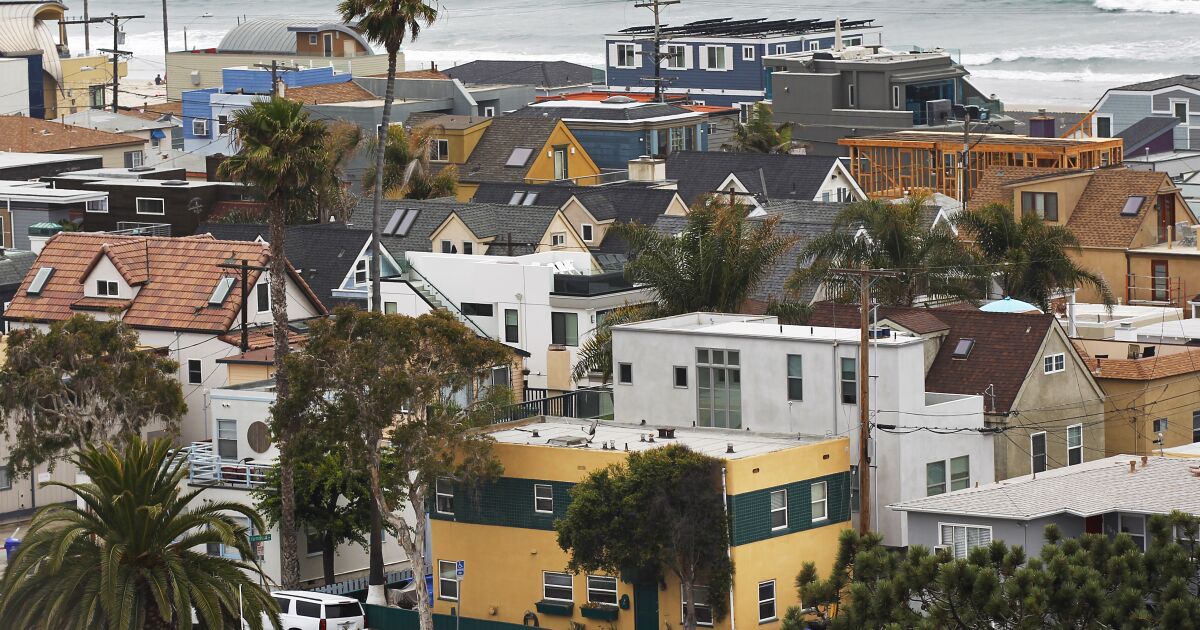Licensing for short-term rentals in San Diego will soon be the law
Short-term rental hosts who have long been able to rent out their San Diego homes to visitors without formal regulations will now have to apply for a license starting next month and hope to earn a coveted license through a city-run lottery. .
A new schedule just posted this month on the city’s website identifies key deadlines as San Diego prepares to go into effect with its already approved vacation rental regulations on May 1 of next year. .
This story is for subscribers
We offer subscribers exclusive access to our best journalism.
Thank you for your support.
While new rules governing all forms of short-term rentals were approved by the City Council last year, they could not go into effect in seaside communities until the California Coastal Commission intervened, which happened in March. But the city agreed that hosts who regularly market their rentals on platforms like Airbnb need more time before the busy summer season kicks off to find out if they’ll be licensed in the lottery.
As a result, applications for licenses will open on October 3 and the application period for whole-home rentals will end on November 30. Under the new schedule, hosts who plan to rent out their entire home for short-term stays of more than 20 days of the year will learn by Dec. 16 if they’ve been chosen for a license.
Those who operate vacation rentals less than 20 days a year or rent a room or two while being present in their home will not be subject to a lottery for licensing. All licenses will be valid for a period of two years.
After years of inaction on how to legalize short-term rentals, elected San Diego leaders agreed last year to limit the number of whole-home rentals citywide to 1% of over 540,000 city homes, or about 5,400. An exception was made for Mission Beach, which has a long history of vacation rentals. In this community, the allocation is more generous, with licenses limited to 30% of the total number of housing units in the community, or approximately 1,100.
Under the proposed lottery system, the highest priority will be given to long-term rental operators who have had no code violations associated with their units in the past two years. Points will be awarded on a weighted scale that would not necessarily guarantee a license for those people, but the system will improve the likelihood of “good actors” getting a license, according to the city treasurer’s office.
Only one permit will be authorized for individuals renting their entire residence for more than 20 days. An unlimited number of licenses will be allowed for vacation rentals of less than 20 days per year or for colocation operations where hosts rent out part of their listing while they reside in the listing.
Jonah Mechanic, who for years handled short-term rentals for his guest clients, said he was pleased with the city’s revised timeline for implementing the new regulations. Still, there’s probably anxiety, he said, among hosts who want to be sure they’ll get a license to operate.
“Hosts now know well in advance whether they will get a license or not, so the calendar certainly passes the smell test,” said Mechanic, who sold his vacation rental business but remained involved in providing feedback to the city on the implementation of the new bylaws. “I guess there’s some nervousness on the part of the hosts because it’s part of people’s livelihoods, whether it’s how they pay their mortgage or who send their children to school. university.
“Although the weighted lottery is not a guarantee (of a license) for everyone, it gives priority to those who have been doing it for a while.”
To fund the administration and enforcement of vacation rental regulations, license and application fees will be levied, ranging from $100 for a two-year license for hosts who rent their properties less than 20 days per year to $1,000 for those who rent entire homes for more than 20 days per year.
City officials estimate applications for the first round of all types of short-term rentals could generate more than $7 million.
Several city agencies will enforce the new regulations to ensure short-term rental hosts are properly licensed.
San Diego City Spokesman Scott Robinson said the City Treasurer’s Office will work with major hosting platforms to remove unlicensed listings on their sites.
“The city is also considering creating an early warning system as part of a technology-based code enforcement solution to address unlicensed listings at all levels,” he added.
Earlier this year, the city hired a new person to administer licensing for short-term vacation rentals. Matt Wood, who joined the city in February, said he will also work with the city’s performance and analytics team, which will oversee the lottery, and the code enforcement division, which will be responsible for enforcing all new regulations.


Comments are closed.